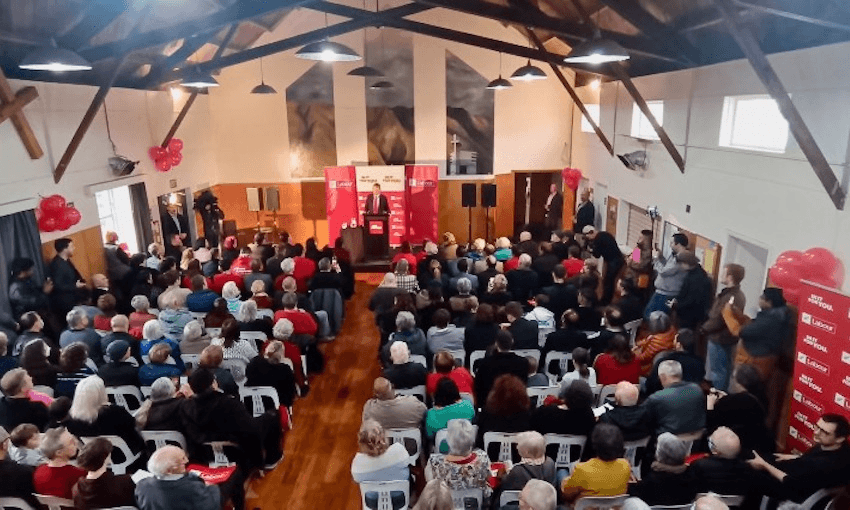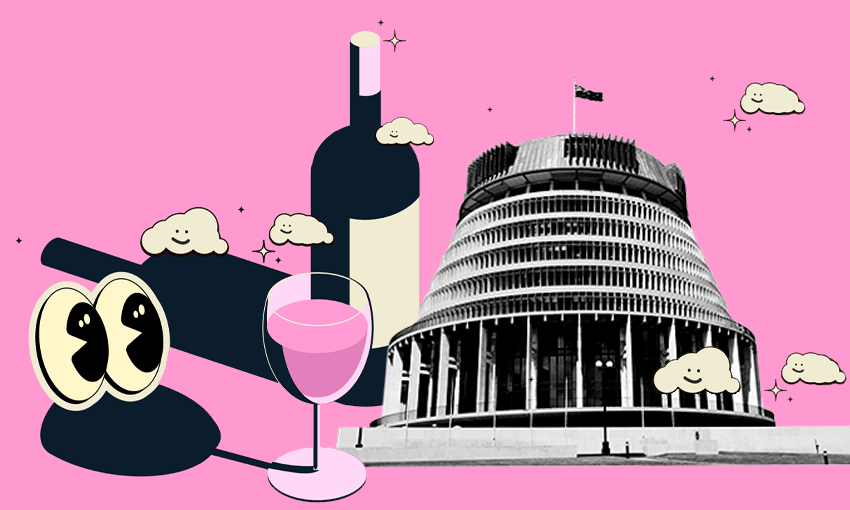Chris Hipkins has announced the Labour Party’s tax policy and, brace yourself, it includes removing GST from fresh and frozen fruit and vegetables from April next year. The package also includes an increase in the in-work tax credit by $25 a week to $97.50, which Labour says will benefit around 160,000 families. Eligibility for Working for Families will also increase, with the abatement threshold moving to $50,000, but not until 2026. Those changes will make about 175,000 families “$47 a week better off on average”, Labour says.
Speaking at a church hall in Lower Hutt, Hipkins said: “The cost of living is the biggest issue facing New Zealanders in this election. Cutting GST from fruit and vegetables and boosting Working for Families will ease the pressure on families as we get through this inflationary cycle,” Chris Hipkins said. “Inflation is tracking downwards, including food price increases, but food is always a big cost for families, so this is a good policy for today and the future.”
Hailing Labour’s efforts on state house building, Hipkins said: “Great things happen when there’s a Hutt boy in charge.”
The GST policy, first revealed by opposition finance spokesperson Nicola Willis, has been roundly criticised in concept by everyone from the Michael Cullen led tax working group to Labour’s own finance minister, Grant Robertson. Hipkins said today: “Other countries, including Australia, take GST off fruit and vegetables. In fact, most countries that have a form of GST have carve-outs for certain items, and if anything, New Zealand is currently an outlier.”
Introducing Hipkins, Robertson thanked their church hosts. “I certainly don’t present myself as a saint,” be said, “but I’ve been on my own road to Damascus with regard to the announcements we’re about to make today.”
The GST exemption would mean fresh and frozen, but not canned, fruit and vegetables are zero rated. An IRD panel would be tasked with determining the specific criteria and the grocery commissioner would “monitor” supermarket implementation.
The package as a whole will cost around $2 billion across four years, says Labour. How will it be paid for? Labour would “remove the last remaining large Covid-19 economic stimulus measure” and get rid of depreciation for non-residential buildings, introduced in March 2020. Otherwise, “the cost of this policy will be met by the annual budget allowance.”
Robertson said: “Now is not the time for new taxes or to promise tens of billions of dollars in unfunded tax cuts which would add to inflation and take money away from health, education and housing to line the pockets of the wealthy.”




















Discussion about this post